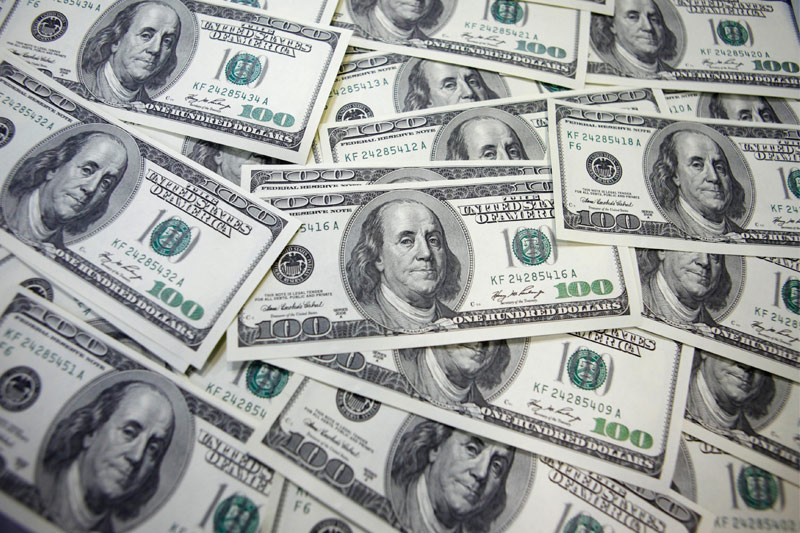Investing.com - The U.S. dollar was higher against all of its major counterparts on Monday, as fresh concerns over the debt crisis in the euro zone weighed on demand for higher-yielding assets and supported the greenback.
During European morning trade, the dollar was up against the euro, with EUR/USD shedding 0.41% to hit 1.3217.
The euro came under pressure after Italian Prime Minister Mario Monti warned over the weekend that the threat of contagion from Spain could cause the debt crisis in the euro zone to flare up again.
On Friday, Spain’s Prime Minister Mariano Rajoy is due to announce EUR40 billion in budget cuts, as he attempts to slash the country’s deficit in the face of a looming recession.
Concerns over Spain overshadowed a report showing that German business confidence improved in March.
The Ifo Institute said earlier that its index of German business confidence inched up to 109.8, from a reading of 109.6 in February. Analysts had expected the index to ease up to 109.7 this month.
The greenback gained ground against the pound, with GBP/USD down 0.28% to hit 1.5824.
The greenback was also higher against the yen and the Swiss franc, with USD/JPY rising 0.45% to hit 82.71 and USD/CHF adding 0.43% to hit 0.9118.
Elsewhere, the greenback was modestly higher against its Canadian, Australian and New Zealand cousins, with USD/CAD easing up 0.06% to hit 0.9982, AUD/USD sliding 0.09% to hit 1.0457 and NZD/USD losing 0.15% to hit 0.8069.
Earlier in the day, official data showed that New Zealand posted a trade surplus of NZD161 million in February, after posting a deficit of NZD159 million the previous month.
Analysts had expected a trade surplus of NZD154 million last month.
The dollar index, which tracks the performance of the greenback versus a basket of six other major currencies, was up 0.33% to hit 79.78.
Later Monday, the U.S. was to publish industry data on pending home sales and Federal Reserve Chairman Ben Bernanke was to speak.
During European morning trade, the dollar was up against the euro, with EUR/USD shedding 0.41% to hit 1.3217.
The euro came under pressure after Italian Prime Minister Mario Monti warned over the weekend that the threat of contagion from Spain could cause the debt crisis in the euro zone to flare up again.
On Friday, Spain’s Prime Minister Mariano Rajoy is due to announce EUR40 billion in budget cuts, as he attempts to slash the country’s deficit in the face of a looming recession.
Concerns over Spain overshadowed a report showing that German business confidence improved in March.
The Ifo Institute said earlier that its index of German business confidence inched up to 109.8, from a reading of 109.6 in February. Analysts had expected the index to ease up to 109.7 this month.
The greenback gained ground against the pound, with GBP/USD down 0.28% to hit 1.5824.
The greenback was also higher against the yen and the Swiss franc, with USD/JPY rising 0.45% to hit 82.71 and USD/CHF adding 0.43% to hit 0.9118.
Elsewhere, the greenback was modestly higher against its Canadian, Australian and New Zealand cousins, with USD/CAD easing up 0.06% to hit 0.9982, AUD/USD sliding 0.09% to hit 1.0457 and NZD/USD losing 0.15% to hit 0.8069.
Earlier in the day, official data showed that New Zealand posted a trade surplus of NZD161 million in February, after posting a deficit of NZD159 million the previous month.
Analysts had expected a trade surplus of NZD154 million last month.
The dollar index, which tracks the performance of the greenback versus a basket of six other major currencies, was up 0.33% to hit 79.78.
Later Monday, the U.S. was to publish industry data on pending home sales and Federal Reserve Chairman Ben Bernanke was to speak.
